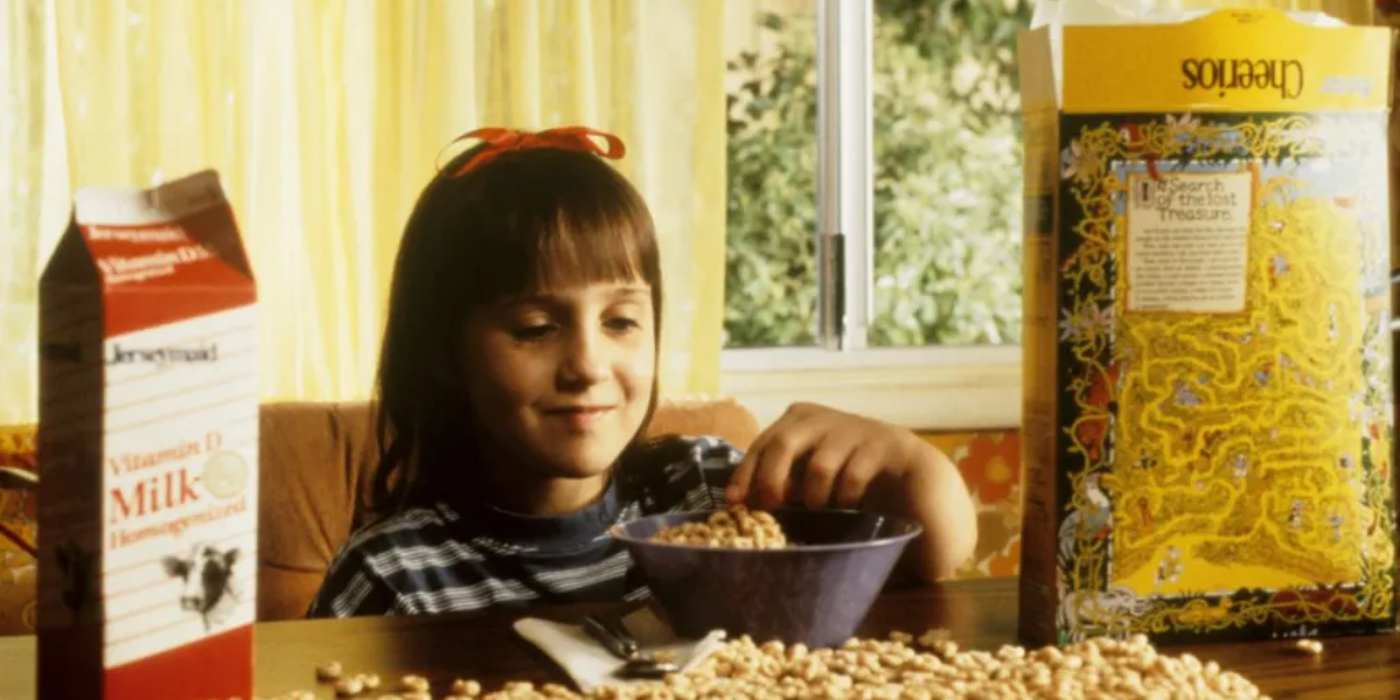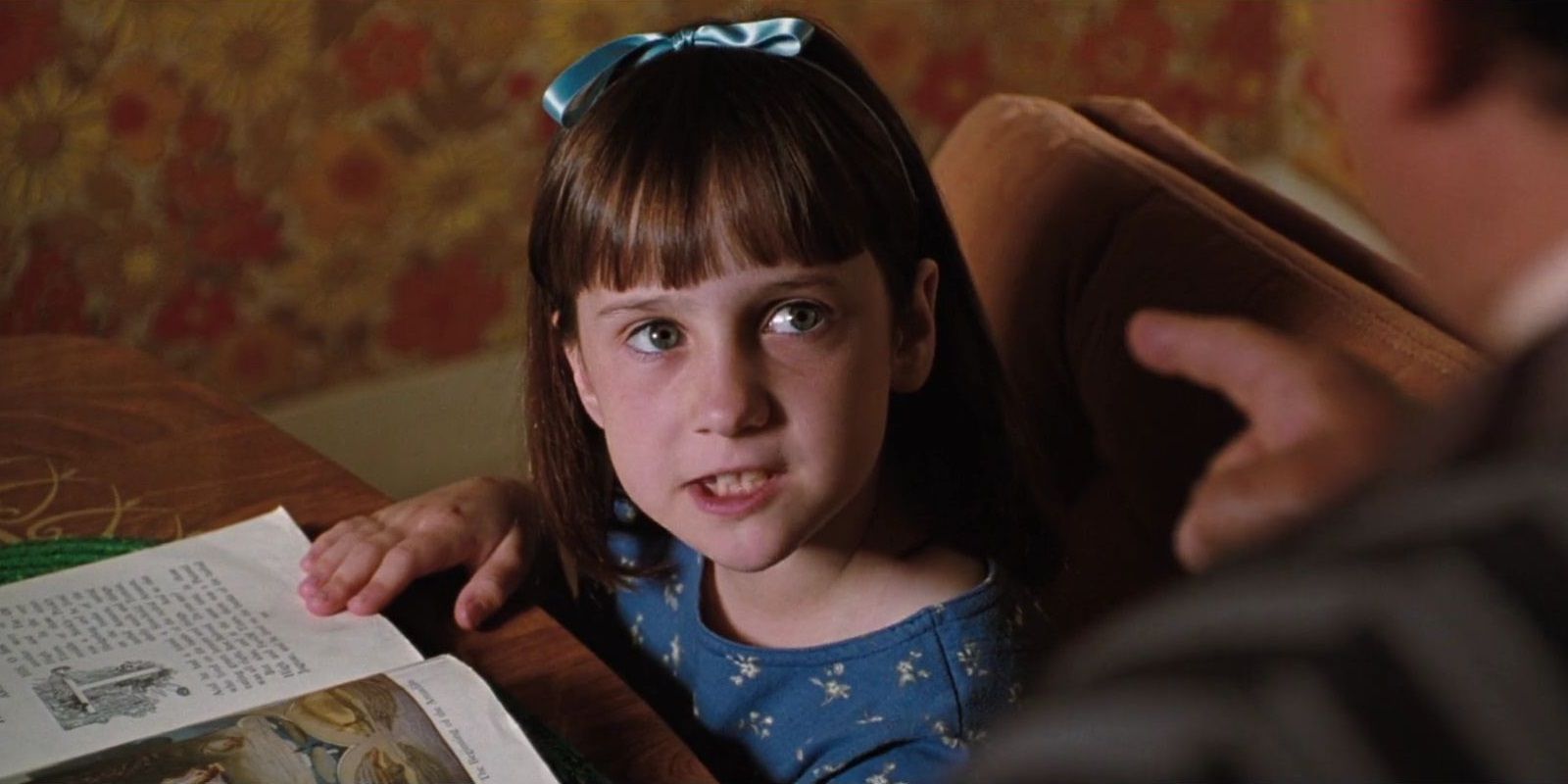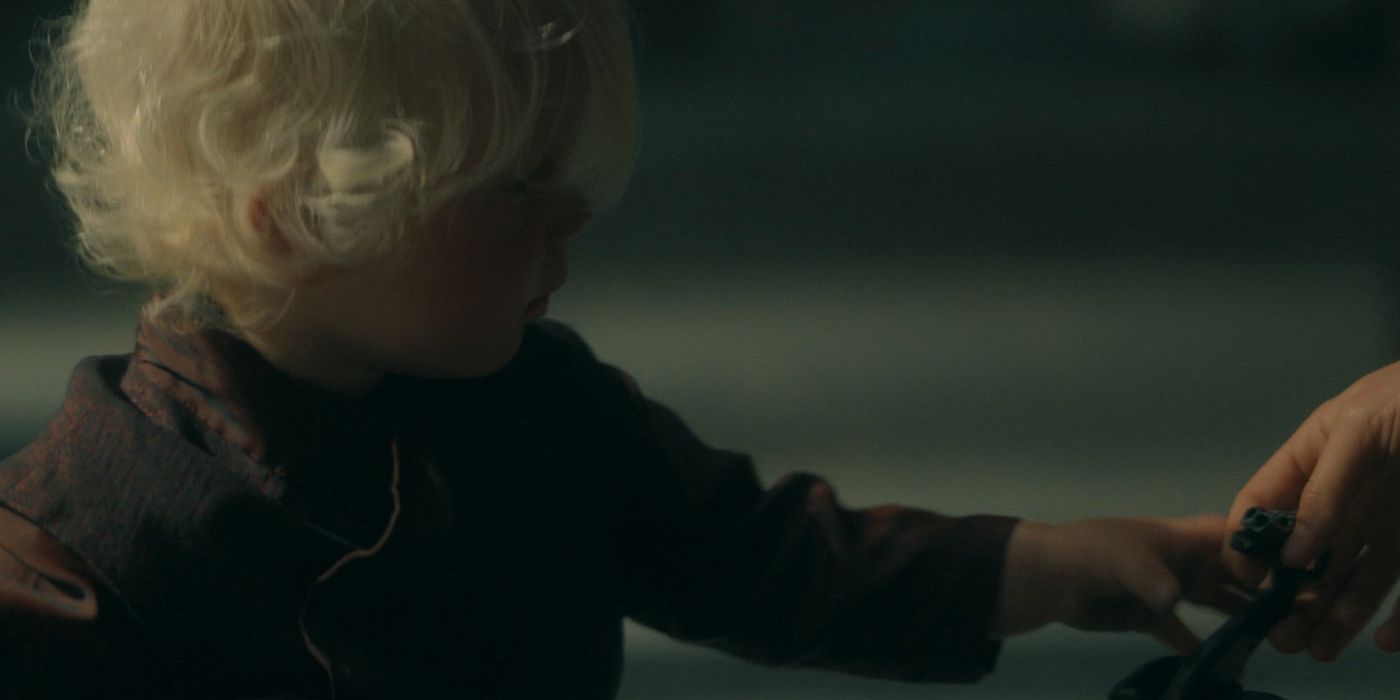While Matilda proves charming in its portrait of a bright young girl who gains magical powers, the extent and origin of these powers isn’t necessarily clear. Roald Dahl’s Matilda is widely considered one of the greatest children’s books ever written. Not only has the novel sold over 17 million copies, it has also seen two major films which are now considered among the best Roald Dahl movies. The story follows young Matilda Wormwood, a clever, book-loving young girl who finds herself neglected and abused at home and school, until she discovers magical powers that allow her to turn the tables on the cruel authority figures in her life.
Despite the work’s massive and enduring popularity, Matilda almost looked very different. Roald Dahl originally conceived the book with a much more cynical edge. In his early drafts, Dahl envisaged Matilda as a wicked and opportunistic child who causes trouble for her kind-hearted parents and uses her magical powers to help an unethical teacher cheat at horse racing (via Oakland Press). It was Dahl’s editor who pushed the author to dramatically rewrite the story. In the end, Dahl restarted the novel from scratch, keeping only the core concept of a young girl who gains magical powers. It’s worth looking into just what those magical powers mean.
What Matilda’s Supernatural Powers Are

In 1996’s Matilda, as well as in the novel and the musical, Matilda’s main power is telekinesis. Her powers first materialize when she becomes angered at the injustice of Miss Trunchbull’s rule, and uses her mind to tip over a glass of water with a newt in it. As the narrative progresses, her powers grow stronger. She hones her abilities by practicing with her father’s cigar, and before long, she’s able to blow up her family’s TV, levitate a room full of objects, and even summon the dexterity needed to telekinetically write a message with a piece of chalk.
Matilda’s powers are different in the book, where they are less reliant on Matilda’s emotional state and are limited to an object she’s directly concentrating on. In the 1996 movie, Matilda struggles to demonstrate her powers to Miss Honey when she’s not feeling angry, and there’s no limit to what she can do. In the musical, Matilda’s psychic powers also allow her to access the memories of Miss Honey. A story she tells about an acrobat and an escapologist turns out to be the true story of Miss Honey’s parents. It’s unclear whether Matilda can do this with everyone, or whether she shares a unique connection with Miss Honey.
Matilda’s Genius Intellect Seemingly Gave Her Magical Powers

Matilda never fully explains how and why Matilda’s powers suddenly appeared, although the most plausible explanation comes from Miss Honey in the original novel. It’s clear that the young Matilda is a genius. At just 6 and a half (or 5 and a half in Roald Dahl’s story), Matilda is tearing through literary classics such as Moby Dick and already has an understanding of complex multiplication. Miss Honey theorizes that Matilda’s powerful brain is under-stimulated due to her poor schooling and TV-centric home life, so this unused potential manifests in psychic energy.
Why Matilda Ends Up Losing Her Powers

While it doesn’t happen in the 1996 movie or the Matilda musical, the ending of Roald Dahl’s original novel sees Matilda losing her powers. In light of Miss Honey’s theory that Matilda’s powers come from her under-stimulated brain, it makes sense that they would begin to fade after Miss Honey moves her up to year 6, where her genius mind can be properly challenged. In the 1996 movie, Matilda has less need for her powers, but there’s no indication that they go away. However, there’s also another, deeper theory behind Matilda’s powers.
At first, the young Matilda’s abilities only seem to become activated during moments of heightened emotion, particularly anger and injustice. Her powers first appear while Miss Trunchbull is giving a speech about her unquestionable, god-like authority. It would seem that the neglected and abused Matilda’s powers manifest as a reaction to her sense of powerlessness. One particularly touching scene in the film sees Matilda use her telekinesis to fix herself a bowl of cereal, something her uncaring parents would never do for her. At the end of Matilda, she’s adopted by Miss Honey, finally finding herself in a loving household where she doesn’t need her powers.



